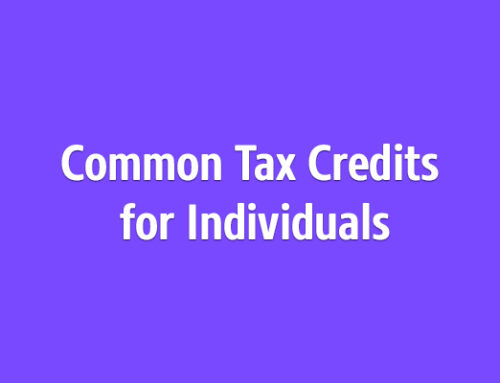Deciding to live as a U.S. citizen or a green card holder (lawful permanent resident) outside the United States comes with its own set of financial responsibilities. Even though you’re in a different part of the world, the IRS still expects you to follow the rules. That means filing income tax returns, dealing with estate and gift taxes, reporting financial assets and keeping up with estimated tax payments, just like you would if you were back home. Reporting foreign income does not mean you will be taxed twice, many Americans living abroad qualify for special tax benefits, such as the foreign earned income exclusion and foreign tax credit, but they can only get them by filing a U.S. return.
This guide is here to break down these obligations in straightforward terms, making it easier for U.S. citizens and resident aliens to handle their taxes while living abroad.
Reporting Income
U.S. taxpayers are subject to tax on worldwide income from all sources and must report all taxable income and pay taxes according to the Internal Revenue Code. You need to report amounts on your U.S. tax return in U.S. dollars. If you earn or spend money in foreign currency, you must convert it to U.S. dollars. Information about currency conversion is available on IRS website. While you’re reporting your income, you must report your gross income. Gross income includes all income you receive in the form of money, goods, property, and services that is not exempt from tax and including taxes withdrawn from your income. In determining whether you must file a return, you must consider as gross income any income that you exclude as foreign earned income or as a foreign housing amount. If you are self-employed, your gross income includes the amount on the Gross Income line of Schedule C, Form 1040.
Tax Treaties
The United States has established income tax treaties with several foreign nations. Tax treaties prevent double taxation by establishing agreements between the United States and other countries. These bilateral treaties offer provisions like foreign tax credits and exemptions, reducing the tax burden on expatriates. Understanding and utilizing these treaties is crucial for minimizing tax liabilities.
If the treaty does not cover a particular kind of income, or if there is no treaty between your country and the United States, you must pay tax on the income in the same way and at the same rates shown in the instructions for Form 1040.
Foreign Earned Income Exclusion (FEIE)
If you meet specific criteria, you may qualify for the foreign earned income exclusion, foreign housing exclusion, and/or foreign housing deduction and exclude part or all of your income in your tax return. To be eligible, you must have foreign earned income, maintain your tax home in a foreign country, and fall into one of the following categories:
- U.S. citizen, bona fide resident of a foreign country for a full tax year,
- U.S. resident alien, citizen or national of a treaty country, bona fide resident of a foreign country for a full tax year, or
- U.S. citizen or resident alien physically present in a foreign country for at least 330 full days in a 12-month period.
Foreign-earned income covers wages, salaries, professional fees, or payments for personal services rendered including self-employment income. It excludes payments for personal services to a corporation, which are considered distributions of earnings and profits, not reasonable compensation. Foreign-earned income doesn’t include pay as a U.S. government employee, services in international waters/airspace, payments received after the tax year, excludable pay like meals and lodging provided by the employer, and pension or annuity payments, including social security benefits.
Foreign Tax Credit
The Foreign Tax Credit enables U.S. taxpayers to offset taxes paid to foreign governments against their U.S. tax liabilities. This credit is designed to prevent double taxation on income earned abroad, allowing taxpayers to claim a credit for foreign income taxes paid or accrued. This helps avoid being taxed on the same income by both the United States and a foreign country. Whether taken as a deduction to reduce U.S. taxable income or as a credit to directly lower U.S. tax liability, it’s a valuable tool for individuals and businesses involved in international activities.
If you choose to exclude either foreign earned income or foreign housing costs, you are ineligible to claim a foreign tax credit for the excluded income. Opting for the credit may result in revoking one or both of these exclusions.
Reporting Foreign Bank Accounts
As a U.S. citizen or green card holder, you are required to file FinCEN Report 114, also known as the Report of Foreign Bank and Financial Accounts (FBAR), if you held a financial interest in or signature or other authority over foreign bank, securities, or other financial accounts, and their total value reached or exceeded $10,000 at any day in the calendar year. Failure to comply may result in severe penalties.
FATCA (Foreign Account Tax Compliance Act)
U.S. taxpayers with specified foreign financial assets totaling more than certain threshold are required to disclose details on the Form 8938 Statement of Specified Foreign Financial Assets. This form must be included with the taxpayer’s annual income tax return. Different asset thresholds apply for those filing a joint tax return or residing abroad.
Taxpayers residing overseas are required to file if the following conditions are met.
- For those filing a joint income tax return, if the combined value of specified foreign financial assets exceeds $400,000 on the last day of the tax year or $600,000 at any point during the year, these thresholds apply. This remains applicable even if only one spouse resides abroad. Married individuals filing jointly will use a single Form 8938 to report all specified foreign financial assets of interest to either spouse.
- For individuals not filing a joint income tax return, if the total value of specified foreign financial assets is more than $200,000 on the last day of the tax year or surpasses $300,000 at any time during the year, these thresholds come into play.
Information Returns of Foreign Company Owners
Certain U.S. citizens and green card holders holding positions in specific foreign corporations or partnerships must complete Form 5471 and/or Form 8865 accompanying schedules to meet reporting obligations. The purpose of this form is to provide the IRS with essential information for enforcing tax laws related to the activities of foreign companies and their owners. The IRS may impose penalties for not filing Form 5471 and Form 8865. The penalty is $10,000 for each year these forms are not submitted.
State Tax Considerations
For U.S. citizens and green card holders living abroad, the obligation to file state taxes after relocating depends on their prior residency. Some expats are mandated to file state taxes even after moving overseas, subject to the rules of their previous state.
In most cases, states require a tax return if you lived there during the year, but filing doesn’t always mean paying taxes. Typically, only income earned within the state is taxable. However, exceptions exist, and income like retirement or investments (interest, dividends etc.), might be taxed.
Taxpayers have the option to change or terminate their state residency, relieving them of state tax obligations. However, the ease of changing residency varies among states, with certain jurisdictions making it more challenging for expats. In some instances, expats might find themselves filing multiple state tax returns in a single year based on their specific circumstances. It’s crucial to navigate the state tax landscape carefully, considering the rules of both their former and current residency.
Social Security and Medicare Taxes
Generally, if you’re an employee performing services outside the United States, U.S. social security and Medicare taxes still apply if:
- Working for an American employer, including the U.S. Government, U.S. residents, or certain entities.
- Performing services on or in connection with an American vessel or aircraft.
- Working in a country with a U.S. bilateral social security agreement.
- Working for a foreign affiliate of an American employer under a voluntary agreement.
Excludable meals and lodging aren’t subject to social security tax if provided for the employer’s convenience. Totalization Agreements eliminate dual coverage, ensuring social security taxes are paid to only one country.
When to File
If you’re a U.S. citizen or green card holder living abroad or on military duty outside the U.S., you automatically get a 2-month extension to file your return without requesting one for your federal taxes. You should check state filing deadlines if it applies to you. For calendar year filers, the regular due date is April 15, and the extended due date is June 15. If needed, you can further extend the deadline to October 15 by filing extension of time to file. However, keep in mind that interest applies to any unpaid tax after the original due date.
Conclusion
Navigating the complex landscape of taxation for U.S. citizens and green card holders abroad requires a comprehensive understanding of residency status, available exclusions and credits, reporting requirements, and international tax treaties. By staying informed and seeking professional advice, individuals can ensure compliance with tax regulations while maximizing available benefits.
References;
Tax Information and Responsibilities for New Immigrants to the United States
https://www.irs.gov/individuals/international-taxpayers/tax-information-and-responsibilities-for-new-immigrants-to-the-united-states
Foreign Tax Credit
https://www.irs.gov/individuals/international-taxpayers/foreign-tax-credit
Foreign Earned Income Exclusion
https://www.irs.gov/individuals/international-taxpayers/foreign-earned-income-exclusion
U.S. Citizens and Resident Aliens Abroad
https://www.irs.gov/individuals/international-taxpayers/us-citizens-and-resident-aliens-abroad
U.S. Citizens and Residents Abroad – Filing Requirements
https://www.irs.gov/individuals/international-taxpayers/us-citizens-and-residents-abroad-filing-requirements
FATCA Information for Individuals
https://www.irs.gov/businesses/corporations/fatca-information-for-individuals
https://www.irs.gov/forms-pubs/about-form-8938
https://www.irs.gov/businesses/corporations/summary-of-fatca-reporting-for-us-taxpayers
Social Security Tax Consequences of Working Abroad
https://www.irs.gov/individuals/international-taxpayers/social-security-tax-consequences-of-working-abroad
Information Return of U.S. Persons With Respect To Certain Foreign Corporations
https://www.irs.gov/forms-pubs/about-form-5471
Return of U.S. Persons With Respect to Certain Foreign Partnerships
https://www.irs.gov/forms-pubs/about-form-8865
https://www.irs.gov/irm/part20/irm_20-001-009
Disclaimer
This article is intended for informational purposes and should not be taken as legal or tax advice. You must consult with your tax, financial or legal adviser about your unique financial situation before acting on anything discussed in this article. TaxBasket LLC is providing informational content for general guidance to help small business owners become more aware of certain issues and topics and this article must never be considered as a substitute for advice provided by your tax, financial or legal advisers. TaxBasket LLC or its members cannot be held liable for any use or misuse of this content.




